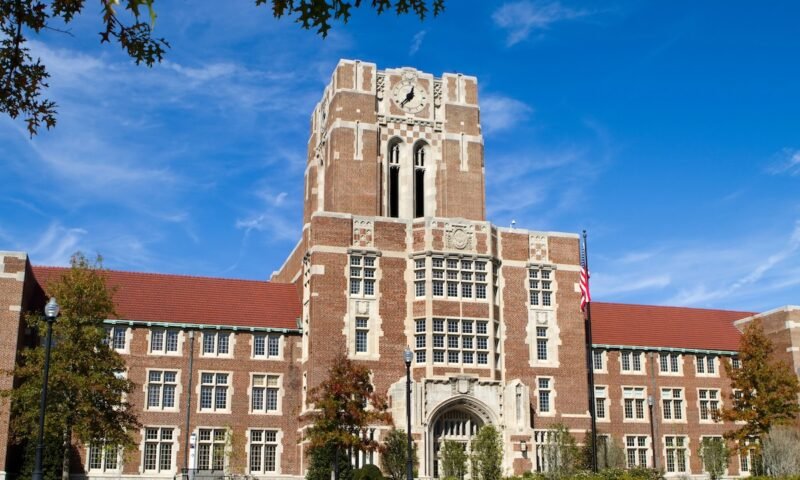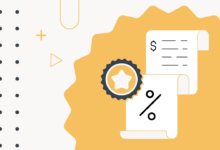

- More than 20% of borrower defense claims involve public or private nonprofit colleges, not just for-profit schools.
- Claim approval rates for private, nonprofit colleges are double those for for-profit institutions.
- Complaints often focus on employment outcomes, program cost, and credit transfer, which vary by type of institution.
Student loan forgiveness tied to borrower complaints of fraud has long been seen as a problem limited to for-profit colleges. But new federal data shows that is no longer the case.
According to recent data obtained in response to a Freedom of Information Act request, 22% of all borrower defense claims involve public and private nonprofit colleges. Even more surprising, applications against nonprofit colleges had a higher approval rate than those against for-profit schools: 50% compared to just 23%. These data contradict years of assumptions that borrower defense issues are isolated to one sector of higher education.
The allegations include a wide range of misconduct, from inflated hiring rates and inflated program costs to false claims about accreditation and credit transfers. While the bulk of claims still stem from for-profit colleges, the presence of public and nonprofit universities in this area suggests a broader pattern of student issues.
This shift in narrative is important. Borrower defense is not just a supportive policy for the worst actors, it is increasingly important in all types of institutions. With hundreds of thousands of applications still pending, questions remain about who gets the exemption and why.
Related to: College Ranking and Student Loan Forgiveness Fraud
What is the borrower’s defense to repayment?
the Borrower’s defense of repayment Discharges federal student loans to borrowers who were misled or defrauded by their college regarding the college’s educational programs, financial fees, or employability of its graduates. This must have influenced the student’s decision to enroll in or take out federal student loans.
Examples include lying about accreditation, licensure eligibility and transfer credit, providing false information about employment rates and earnings after graduation, and providing false information to college ranking organizations.
The main categories of borrower defense to repayment include gross misrepresentation, gross omission of fact, breach of contract, aggressive and deceptive employment, and court judgment against the college. Court rulings may include findings that the college violated federal and/or state law and regulations relating to educational services, financial fees, and graduate employability.
If the borrower’s discharge request is approved by the U.S. Department of Education, the U.S. Department of Education will repay the remaining balance of federal student loans borrowed to attend college. The US Department of Education will also refund payments that have already been made.
Statistics related to borrower defense of repayment
More than three-quarters (78%) of borrowers’ defense of repayment requests related to for-profit colleges, with 22% related to public and private nonprofit colleges.
Half (50%) of borrowers’ defense of repayment requests related to private, nonprofit colleges were approved, representing nearly a third (29%) of the total. Nearly a quarter (23%) of borrowers’ defense of repayment requests related to for-profit private colleges were approved, representing 71% of the total.
barely No applications related to public colleges have been approvedBut this may be because many of these applications are still pending.
As shown in this table, 78% of borrower defense against repayment requests related to public colleges are still pending, compared to 61% of requests related to for-profit private colleges and 39% of requests related to private nonprofit colleges.
More than 80% of the pending applications are for for-profit private colleges, and 19% are for private nonprofit colleges (10%) and public colleges (9%).
The most common claims include employment opportunities, the cost of the program and the nature of the loans, educational services, career services, and transfer credits.
- Employment prospects (15.7%)
- Program cost and nature of loans (14.0%)
- Educational services (13.6%)
- Professional Services (13.2%)
- Transfer of credits (10.3%)
- Other (8.1%)
- Employment rate (5.8%)
- Registration required (5.6%)
- Acceptance and necessity of registration (4.7%)
- Admission selectivity (4.6%)
- Representations to third parties (4.0%)
- Breach of contract (0.3%)
- Court ruling (0.1%)
Most claims are proportional to the number of requests, with a few exceptions.
- A A greater proportion of complaints at private, nonprofit colleges relate to the placement rate than at private, for-profit colleges20.5% versus 4.2%. 40% of complaints about placement rate occur at private, nonprofit colleges, with 60% occurring at for-profit private colleges, which should differ from the typical rate of 80% to 90% for other complaints at for-profit private colleges.
- A The largest proportion of complaints at public colleges relate to the cost of the program and the nature of the loans (17.9%) compared to for-profit private colleges (13.9%) and non-profit private colleges (12.4%).
- A A greater proportion of complaints at public colleges relate to educational services (15.5%) compared to for-profit private colleges (13.7%) and non-profit private colleges (11.5%).
- A A greater proportion of complaints at private for-profit colleges relate to employment prospects (16.3%) compared to public colleges (13.2%) and private non-profit colleges (12.6%). Likewise, a greater proportion of complaints at private for-profit colleges related to career services (13.7%) than at public colleges (11.9%) and private nonprofit colleges (10.4%).
Related to: 30 Most Expensive Colleges in the United States
An important note about how schools are ranked
Private non-profit organization: These are private, non-profit schools like Harvard or Yale.
Ownership: These are for-profit schools.
general: These are public schools (such as the University of California system).
foreign: These are schools located in foreign countries that have an eligible FSA school code.
Data related to borrower defense and repayment
Below is the full data set for February 2023, showing the more than 760,000 applications received, along with their status, school type, and the allegations made in the application.
Nearly 12,800 borrowers were excluded from repayment applications because they did not include a college on the application.
This table is divided into three parts to fit the width of the page. The number of allegations exceeds the number of borrower defense requests for repayment, as each request may include more than just one allegation.
Acceptance and urgency for registration | |||||
|---|---|---|---|---|---|
Representations to third parties | ||||
|---|---|---|---|---|
Frequently asked questions
What percentage of borrower defense claims are related to public and non-profit colleges?
More than three-quarters (78%) of borrowers’ defense of repayment claims related to for-profit colleges, with 22% related to public and private nonprofit colleges.
Why do borrower defense approval rates differ between school types?
No applications were approved for public colleges, and we do not have any specific data or reasons as to why.
What are the most common allegations raised in borrower defense claims?
Most of the allegations relate to employment services, the nature of student loans and lending, and the educational services provided.
Final thoughts
The latest data on borrower defense claims reveals that problems with student loans are not limited to for-profit institutions.
Complaints and approvals are on the rise at private, nonprofit and public colleges as well, suggesting a broader pattern of student dissatisfaction and potential misconduct.
As more applications are reviewed and processed, the spotlight may continue to shift beyond the usual objectives. Borrowers considering a claim should document their experiences carefully, as approval rates vary widely by type of institution and claim.
Don’t miss these other stories:
This data is based on a Freedom of Information Act (FOIA) request submitted on January 9, 2023. Response received on March 12, 2024. Data is as of February 22, 2023.





